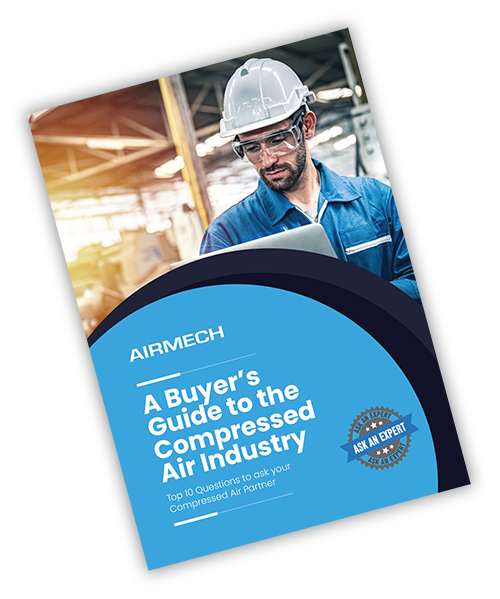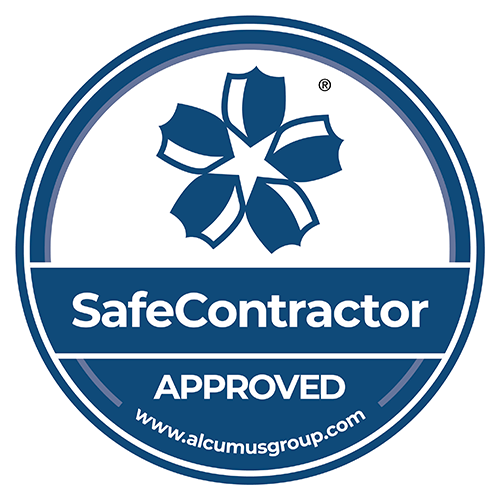Home > FAQ
You've Got Questions...
We've Got Answers
Frequently asked questions
AirMech Head Office is based in Nuneaton, Warwickshire but we cover the whole of the UK. We are well served by central connections having excellent road links with good access to the A5, M6, M42 and M69 motorways.
Managing compressed air is a specialist service, with regulations and accreditations gained through training courses to fully meet manufacturers requirements. All AirMech engineers are manufacturer-trained and we have over 125+ years combined industry experience.
Like most well regarded companies AirMech have Employers, Public, Professional and Professional Indemnity insurance in place.
When making a big purchase, we like to give you options to assist with payment. AirMech partners with a well-known finance broker and we are happy to discuss varying payment terms on new equipment if required.
Compressor manufacturers support distributors with warranties from 2-10 years on main components provided they are serviced by AirMech as per the manufacturer's recommended schedule.
AirMech offers a full range of air compressor and air treatment servicing/repair options to meet your needs. We cover:
Compressors
Dryers
Filters
Condensate Systems
Under the Pressure System Safety Regulations (PSSR) 2000, the owner of a pressure system should have a Written Scheme of Examination (WSE). AirMech can assist with the creation of a WSE, which lists all of the critical components of the pressure system which require examination by a competent person.
What is the difference between a screw, vane and piston compressor?
Reciprocating compressors use pistons to compress air within cylinders, which is then sent to the pressurised receiving tank for use. Rotary compressors, on the other hand, use rotors, and rotary vane compressors use a single rotor with longitudinal slots and vanes, which slide in and out of the rotor to form compression pockets. AirMech is fully conversant with all types of compressor and can help you to select the best type for your application.
When making a big purchase, we like to give you options to assist with payment. AirMech partners with a well-known finance broker and we are happy to discuss varying payment terms on new equipment if required.
Condensate is a chemically aggressive fluid which consists of mostly water but also some oil and dirt. It is an unavoidable by-product of air compression, and legislation regarding disposal needs observing carefully to avoid the substantial fines associated with non-compliance.
The Water Resources Act (1991) states that it is an offence to knowingly pollute controlled waters by the disposal of poisonous, noxious or polluting matter. Compressor condensate comes under this description and can result in the polluter being liable for fines of up to £20,000 or in some cases imprisonment. This legislation is levelled towards the responsible person, and sanctions are taken against the individual, not the Company.
There is other relevant legislation covering the correct disposal of condensate to include ‘The Environmental Protection Regulations 1991’ and ‘The Water Industry Act 1991’. Additionally, the H&S Commission Statutory Instrument 1989, No 2169 covering Pressure Systems and Transportable Gas Containers, makes it clear that from 1994 all new installations should have condensate drainage points feeding into an oil-water separator prior to final discharge. Furthermore, the British Compressed Air Society states categorically that ‘Under no circumstances should it be permitted to discharge untreated compressed air condensate to public surface water, sewers, or to ground’ (CAC 9407).
As highlighted, the importance of implementing a proper procedure for the removal of compressor condensate is imperative if you want to avoid punishment.
AirMech suggests the following pro-active measures to ensure compliance:
• Install a timed/zero-loss drain on your air receiver – this allows condensate to be automatically drained from your air receiver. Zero-loss drains ensure that no compressed air is lost in the process, saving energy by not having to re-compress air lost when manually draining condensate.
• Install an oil-water separator – with low maintenance costs, this will ensure that condensate is treated correctly. Following treatment, the condensate is 99% water of which you can dispose of legally down the foul sewer drain.
Proper disposal of waste oil – following above treatment of condensate, this will ensure that any waste oil is disposed of correctly with an authorised waste disposal company who is registered as a ‘hazardous waste producer’ or ‘licensed waste carrier’.
If the above measures are implemented, then any visits from the Health and Safety Executive should run smoothly.
TBC
TBC
TBC


